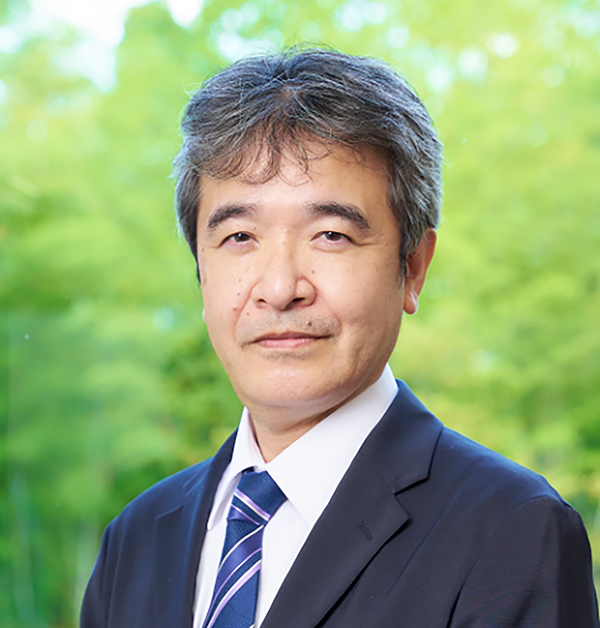- HOME
- Overview
Overview
 |
Yataro Daigo MEXT Grants-in-Aid for Scientific Research on Innovative Areas Platform of Supporting Cohort Study and Biospecimen Analysis Yataro Daigo, Research Support Representative (The Institute of Medical Science, The University of Tokyo (IMSUT)) |
The Platform of Supporting Cohort Study and Biospecimen Analysis (CoBiA) is one of the four platforms (PFs) of the MEXT's Grants-in-Aid program for Scientific Research on Innovative Areas-Platforms for Advanced Technologies and Research Resources, which was implemented from FY2016 to FY2021. Based on the high evaluation of the supporting activities conducted for the past six years, the CoBiA platform made a fresh start from FY2022 to support scientific research under the MEXT's Grants-in-Aid program for Transformative Research Areas-Platforms for Advanced Technologies and Research Resources.
Recent years have seen significant advancement and segmentation of life medical sciences as a natural course of their development, which has created a situation where the quality of research results is determined to a significant degree by whether state-of-the-art analytical methods and/or analytical results from human specimens are available. Considering this situation, the MEXT has made efforts to develop a core laboratory for sharing state-of-the-art analytical methods and specimens among KAKENHI recipients, through cooperation between researchers across Japan. It is a program for forming platforms for advanced technologies and research resources through close cooperation between relevant organizations, with the Inter-University Research Institute and joint usage/research centers playing central roles in meeting various needs of researchers effectively. In particular, human biospecimens are considered the most needed research resources since the analytical results of these specimens directly lead to knowledge about human diseases and in light also of the abundance of information they provide. However, it is difficult for individual researchers to use human specimens because these specimens are generally difficult to access and because it is essential to prepare an analysis plan that complies with ethical, social, and legal regulations. Under these circumstances, the CoBiA PF was created to support all KAKENHI recipients in their research involving human specimens, information on them, and analytical methods for it in an integrated manner, and has developed through interactive efforts between supporters and support recipients.
Over the past eight years, we have supported 6,930 proposals for four types of research: healthy cohort, brain, biological samples, and data analysis, and contributed to the publication of 1,131 original papers. Each fiscal year, we evaluate the results of our support and the latest needs of researchers and add new support elements to enhance our support further.
Specifically, the PF will collect, store, and provide resources that provide the basis and foundation for research (materials, data, experimental specimens, samples, etc.) and support the techniques for analyzing biospecimens or biomedical information. For this purpose, the PF will provide advanced resources with high scientific value and analytical support by combining facilities and equipment of the core institution (i.e., IMSUT) and partner institutions or highly technical and advanced techniques of these institutions. In addition, starting from FY2020, the PF will provide support for research to overcome COVID-19, as well as support to remove research obstacles caused by COVID-19 and accelerate research.
Purpose of Research Support
The purpose of this platform is broadly divided into four key areas. The first objective is to establish a robust research infrastructure for systematically collecting, organizing, and securely storing cohort data, as well as DNA and other biospecimens, from approximately 135,000 individuals representative of the general Japanese population. This infrastructure will support the wide use of these data and biospecimens in fundamental research aimed at personalized disease prevention and the development of medical care tailored to the genetic makeup of the Japanese population. These bioresources, which represent Japan, are expected to drive world-leading research outcomes.
The second part is to build the Japanese Brain Bank Network to promote the substantial use of postmortem brains obtained from autopsies by providing these brains as open resources, to support studies aiming to elucidate psychiatric or neurological disorders.
The third part is to provide much sought-after support to high-sensitive, multifaceted analysis of in vivo molecular dynamics or biomarkers using various human biospecimens, which are extremely difficult for individual researchers to access, by collecting and providing abundant biospecimens and information and by our unique support to multimolecular our unique support for multimolecular ultra-high-sensitivity analysis and omics analysis. This will support the production of epoch-making research results that elucidate the true nature of life phenomena, as well as transition to the next phase.
The fourth part is to help the production of creative research results and to develop human resources who specialize in biomedical information analysis, by providing support to researchers who need single or integrated analysis of genome information from biospecimens that have become available in large volumes with the explosive development of analysis methods for biospecimens; bioinformation, including omics information; health information on individuals, including real-world data; and clinical and other medical information.
For the research support plan for FY2024, please see here.
Lastly, we encourage life sciences researchers to actively leverage our support to advance both individual and group initiatives. We also hope you will share your research findings globally while engaging in public outreach and education to foster dialogue on science and technology with the broader community.
We also invite visitors to explore our website and gain deeper insights into the current state and critical achievements of life sciences research in Japan through our research introductions. We sincerely appreciate your continued support and collaboration with our research and the researchers driving it forward.








